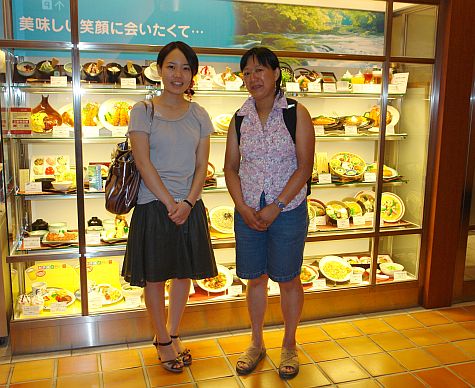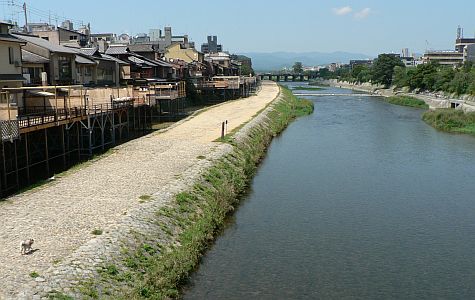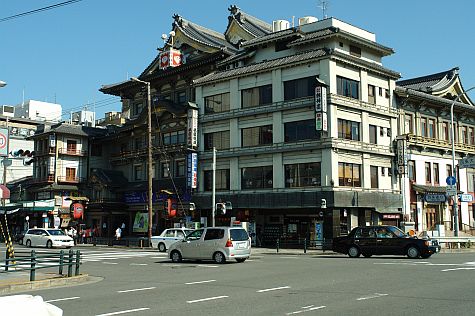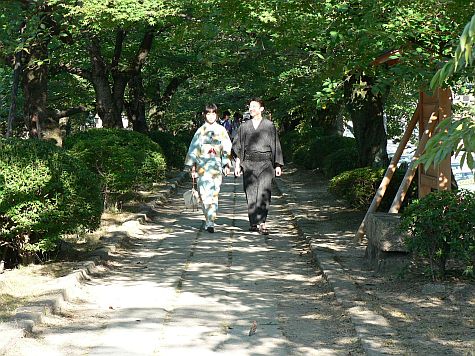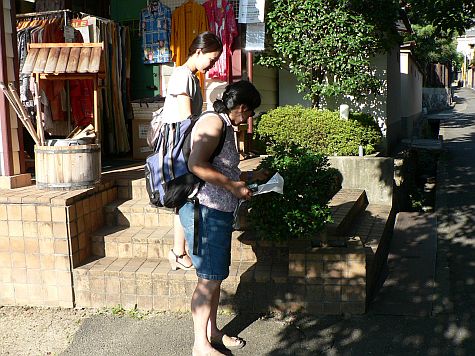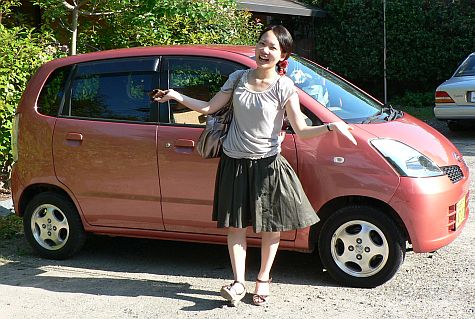Diana and I have been travelling around Kyoto on foot and by bus, so going by car is different. Maya parked the car on one side of the Kamo River, and we crossed over to the shopping area.
When we go to the Shinkyogoku shopping arcade, we thought that all of the malls were starting to look the same. Then, when we turned a corner and found the Seria, we realized that we in the same area off Shijo where we had been two days earlier.
Maya had been instructed by Adam to go shopping for kimonos. She took us back onto Shijo to a small “one price” shop, where individual price tags are not necessary. This makes some things really cheap, while others (e.g. fans) are relatively expensive.
Jinbei — summer shorts with a matching top — were in season. We decided to buy these for our sons, as well as kimonos. The belts were priced separately from the kimonos, so Diana thought she could find cheaper and better ones elsewhere (actually later, in Tokyo).
Maya pointed out the Minamiza theater, the birthplace of kabuki. Our schedule didn’t give us a view inside.
We drove up to the northeast section of Kyoto, so that we could talk while strolling along Philosophers Walk. We happened upon a rare couple wearing kimonos on their walk.
A little farther along, there was a used kimono shop. We learned that vintage kimonos are older and made of natural fabrics, whereas mass produced modern kimonos are made with synthetic blends (i.e. polyester).
Diana and I had to consciously remember the side for the front passenger door, because Japanese cars follow the British style.
Maya drove us back to our hotel, across town. We were going to host her for dinner in that area, but after two drives around the block, discovered that there weren’t any parking spaces — for free, or by the hour — nearby, during rush hour. Maya decided that it would be easier just to drop us off, and head for home. We expect to have her come to visit us in Toronto, soon!

